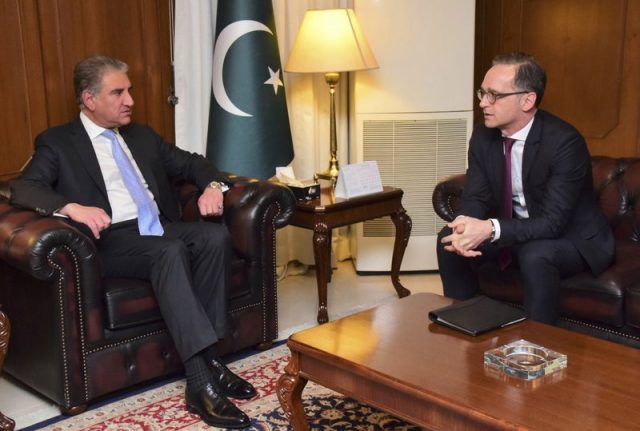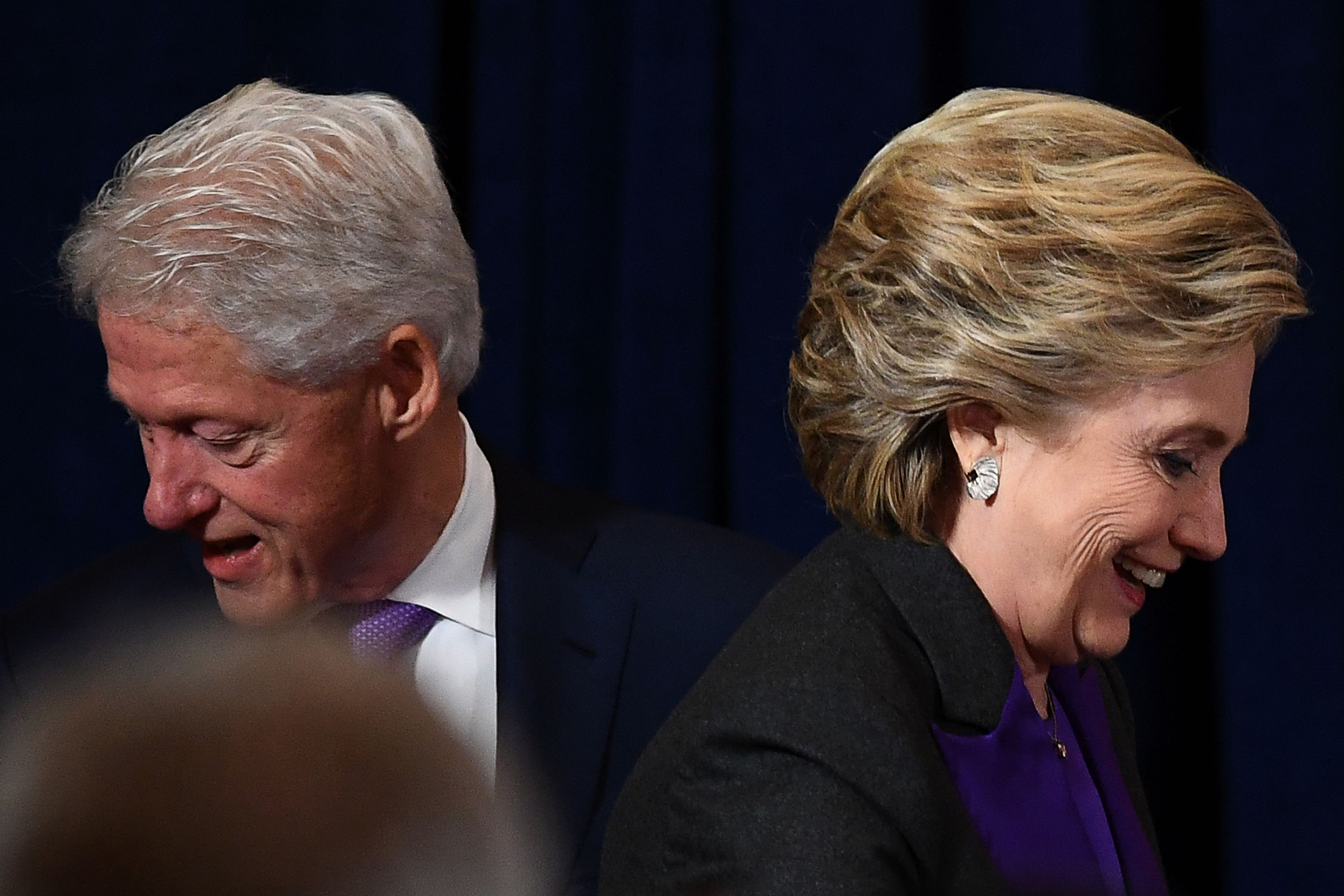News Desk |
On 12th March, the 16-days long negotiation sessions between the Afghan Taliban and US representatives came to an end in Doha, and both sides have affirmed that progress has been reaching towards signing a peace deal that would bring an end to USA’s 17-years long invasion of Afghanistan. The Doha peace talks included the US special envoy, Zalmay Khalilzad, while the Taliban was represented by their political chief Mullah Ghani Baradar.
Khalilzad later affirmed that the negotiations were a success, and the “conditions for peace have improved.” Through a series of tweets, Khalilzad provided the US narrative upon the conclusion of the peace talks and noted that achieving peace is the agenda of both, the US and the Taliban. He stated, “It’s clear all sides want to end the war. Despite ups and downs, we kept things on track and made real strides.”
President Trump’s decision to bring an end to USA’s involvement in multiple wars, but he is not supportive of the US decision to withdraw from Afghanistan.
Zalmay Khalilzad wrote, “Peace requires agreement on four issues: counter-terrorism assurances, troop withdrawal, intra-Afghan dialogue, and a comprehensive ceasefire. In January talks, we “agreed in principle” on these four elements. We’re now “agreed in the draft” on the first two.” The Taliban spokesperson, Zabihullah Mujahid, also affirmed that “progress was achieved” during the Doha peace talks, however, the Taliban have put forward several questions on how peace in Afghanistan can truly be maintained.
The statement of the Taliban spokesperson states, “This round of talks saw extensive and detailed discussions taking place regarding two issues that were agreed upon during January talks. Those two issues were the withdrawal of all foreign forces from Afghanistan and preventing anyone from harming others from Afghan soil; how and when will all foreign forces exit Afghanistan and through what method? Similarly, how will the United States and her allies be given assurances about future Afghanistan?”
Read more: How to achieve peace in Afghanistan?
The Ghani-led Afghan government has not been able to make any progress in holding direct talks with the Taliban; however, Zalmay Khalilzad is confident that once the US withdrawal has been finalized, Taliban will hold talks with the government. He tweeted, “When the agreement in the draft about a withdrawal timeline and effective counterterrorism measures is finalized, the Taliban and other #Afghans, including the government, will begin intra-Afghan negotiations on a political settlement and comprehensive ceasefire.”
The Taliban have denied the possibility of holding talks with Kabul in a strongly worded statement that says, ”It should be mentioned that no agreement was reached regarding a ceasefire and talks with the Kabul administration, nor were other issues made a part of the current agenda. Reports by some media outlets in this regard are baseless.”
The Doha peace talks included the US special envoy, Zalmay Khalilzad, while the Taliban was represented by their political chief Mullah Ghani Baradar.
Afghanistan Continues to be a Battleground
Despite the peace negotiations between the US and the Taliban, Afghanistan still remains a battlefield where both parties continue to undertake violent operations and strikes that result in the deaths of innocent civilians. On Tuesday morning, the US conducted air strikes in the Sher Kala region of Andar district in Afghanistan’s Ghazni province, which hit a mini-van transporting locals and resulted in the death of 8 passengers. Meanwhile, another air strike occurred that resulted in the deaths of 4 more civilians.
While the USA claims that all reports of civilian deaths are false and nothing but “Taliban propaganda”, Al Jazeera’s reports from Kabul reveal the locals of Ghazni crying out against the American attack on innocent civilians. There have been reports of several other air strikes in Ghazni and other Afghan provinces, and the US forces have accepted responsibility while claiming that they killed Al-Qaeda and Taliban militants, not civilians.
Read more: Who desires peace in Afghanistan and who does not?
While speaking to Al Jazeera, Hazratullah Mashal, a resident of Laghman, stressed that even if the US forces suspect that the Taliban are hiding amongst locals, they have no right to conduct air strikes on innocent civilians. Mashal urged, “If I am sheltering the Taliban or you find them here, take me to court, but I cannot tolerate these air strikes anymore.”
Despite US claims of “relaxing their rules of engagement”, Al Jazeera cited the UN reports that the US air strikes have caused the deaths of 393 Afghan civilians, more than double than 2017, and more than the casualties reported in 2014, 2015 and 2016 combined.
The founder of the notorious mercenary organization Blackwater, attempting to lobby for privatizing the war in Afghanistan.
The Taliban have claimed their attacks on the Afghan army in the provinces of Baghdis, Baghlan, and Farah, resulting in the deaths of over 20 Afghan soldiers. Earlier on Tuesday, the Taliban killed 20 soldiers of the Afghan army, and captured 20 more, despite making progress in the peace talks with the US representative.
Yesterday, the USA State Department released its 2019 Human Rights Report that is touted as an instrument that allows the US to “train a spotlight” on the human rights violations committed by multiple countries, particularly China and Iran. The Taliban spokesperson in response to the state department’s report, accused the US government of being “involved in crimes against humanity”.
Read more: Can Iran help reach a lasting peace in Afghanistan?
The statement issued by Taliban reads, “According to her own admission, the US has dropped over 7000 bombs on the oppressed Afghan people over the course of the previous year with most of its victims being civilians, especially women and children. It carries out barbaric raids on Afghan homes, loots their personal valuables, breaks down their gates and then bombs their homes, razes their clinics, mosques, madrassas, bazaars and agriculture land and the Afghans are a witness to their daily human right violations and war crimes.”
Fate of the Ghani-led Government Hangs in the Balance
The Taliban are still refusing to hold direct talks with the Ghani-led government, and Kabul is drenched in extreme frustration amidst heavy losses to the Afghan army. While the Taliban reject the Ghani-led government as a “puppet” regime, Ghani stresses that the peace process cannot be concluded without involving Kabul. Arab News quoted Afghan President Ashraf Ghani, “The ownership of the peace process belongs to people and the government.”
During an interview with REF/RL, Abdullah Abdullah, the Afghan Chief Executive, accused the Taliban of using the peace talks as an instrument for “propaganda purposes” and stressed that the USA must maintain its military presence in Afghanistan until a settlement with Kabul and the Taliban is achieved.
The Taliban spokesperson, Zabihullah Mujahid, also affirmed that “progress was achieved” during the Doha peace talks.
Abdullah noted, “Unless the Afghan government has direct negotiations with the Taliban, the Afghan people have a right to be concerned. The Taliban are propagating that they made progress during these talks and have come to certain agreements (with the US). The Taliban simply want to drag this process as long as possible. We think that the Taliban want to use these peace talks for political and propaganda purposes instead of using these as a step towards peace. “
Former Afghan President, Hamid Karzai, commented on the importance of intra-Afghan talks during an interview to Al-Jazeera, he noted, “There have to be talks between the Taliban and the government and that there has to be an inclusive intra-Afghan dialogue in which the government is very much present. We hope we will accomplish that very soon.” However, the Taliban have denied reports of any possibility of direct talks with Kabul.
Read more: Back to square one – A bid for peace in Afghanistan
Privatization of the US War in Afghanistan?
For over a year, the US media has been airing reports of Erik Prince, the founder of the notorious mercenary organization Blackwater, attempting to lobby for privatizing the war in Afghanistan. Reports suggest that his plan for privatizing the war was rejected as President Donald Trump attempted to seek out a US withdrawal and a peace agreement between the Taliban and the Kabul government.
The Taliban are propagating that they made progress during these talks and have come to certain agreements (with the US).
During an interview with Mehdi Hasan in the Oxford Union, Prince announced his support for US President Trump’s decision to bring an end to USA’s involvement in multiple wars, but he is not supportive of the US decision to withdraw from Afghanistan. Instead, he wants the US to replace the 50,000 NATO troops and mercenaries with 6000 contractors and 2,000 US special operatives, in a bid to reduce the US defense budget by $30 billion per year.
Prince said, “Here’s the thing, if we, if the United States leaves Afghanistan, withdraw any of the troops support or monetary support, you will have a moment like Saigon in 1975 with helicopters having to lift people off the roof of the US Embassy. It will be that bad.” He noted that a complete US military withdrawal will only result in the collapse of the Afghan military strength, and the Blackwater contractors can provide them with structural support and mentoring.
Read more: US further sidelines Pakistan in Afghanistan peace efforts
Prince claimed, “I do want to end the war by giving the Afghan forces the means to survive and to be much more offense. If you provide mentors and you provide air support, and logistic support to those units, they can actually get out and get after the enemy.”
During Mehdi Hasan’s program, an Afghan diplomat Naveed Noormal countered Prince’s proposal of privatizing the Afghan war in a strongly worded statement, he said, “How do you justify that you the mercenaries of death will ever want the war to conclude given you make money out of it?”
The US Taliban talks have been concluded for now and both parties have affirmed that progress has been made and the agreement is in the draft, while further steps are being taken to conduct an intra-Afghan dialogue, which the Taliban vehemently deny. No dates have been specified by either party for further negotiations.
Mina Jahangir with additional input by News Desk.














